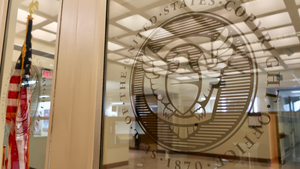The US Copyright Office has declined to review the compulsory licence that covers the mechanical copying of songs within the US in response to a request by American songwriter George Johnson. However, next year’s review of the MLC – which administrates the compulsory licence in the streaming domain – will provide another opportunity to seek a review and possible reform.
The compulsory licence – sometimes referred to as the Section 115 licence – means that anyone can make a mechanical copy of a song in the US without getting bespoke permission from its writer or publisher, providing they go through the administrative process set out in the compulsory licence and pay royalties at rates set by the US Copyright Royalty Board.
As well as covering the pressing of physical recordings of songs, the licence also applies to the copying element of a stream. This means that, whereas in most other countries streaming services negotiate deals with either publishers or collecting societies to license the copying element of each stream, in the US they can rely on the compulsory licence and the rates set by the CRB.
There have been various controversies in relation to the compulsory licence in recent years, including disputes over the rates that should be charged for both physical discs and streams, and also in relation to the administration of the licence in the context of streaming.
The 2018 Music Modernization Act – which resulted in the creation of the aforementioned MLC – sought to address the administration issues. Meanwhile, thanks to persistent campaigning – not least by Johnson – the CRB has increased the royalties due under the licence on both discs and streams.
However, despite the royalty rate increases, there remains some debate in the songwriter community as to why the compulsory licence even exists, especially in the streaming domain, given streaming services are more than capable of negotiating direct licensing deals on the open market.
In a letter to the Copyright Office back in June, Johnson noted that the compulsory licence was originally introduced all the way back in 1909 for the sale of piano rolls, the concept of mechanical rights having begun with the sale of player pianos.
Back then, he wrote, it could not have been anticipated that that compulsory licence would ultimately be “used billions of times, by the largest trillion-dollar corporations in the history of the world, with teams of attorneys”.
While the Copyright Office has reviewed the role of the compulsory licence before, Johnson also noted the major changes that have occurred in the way music is consumed over the last decade.
“Unfortunately”, he stated, “those [previous] studies are now outdated and considering the vast changes in the delivery of musical works and sound recordings, experts now think a new study would be very helpful”.
Responding to that letter last week, the Copyright Office wrote: “As you know, the section 115 licence was previously explored by the Office and it was recently amended by Congress as part of the Music Modernization Act”.
“As the changes made to the licence through the MMA have been effective only for the past two and a half years, the Office believes that it would be premature at this time to engage in a new study of the section 115 licence”.
The letter then noted a previous report it published in 2015 which acknowledged that “many parties have called for either the complete elimination or modernisation of section 115”.
At the time, it added, the Copyright Office opted for reform instead of repeal because “it was … concerned that eliminating the licence would cause extraordinary difficulties associated with negotiating individual licences for the millions of musical works offered on digital music providers’ services”.
The letter concluded: “Although we do not intend to undertake a new study of the section 115 licence at this time, we want to remind you that the Office welcomes input from stakeholders and members of the public to better inform our decision-making. I would like to thank you again for your letter and any additional views that you may wish to provide to the Office in the future”.
The Copyright Office is obliged to review the entity that administrates the compulsory licence in the streaming domain – ie the MLC – every five years, with the first review due to take place next year. It seems likely that, once that review is underway, songwriters will again urge the Copyright Office to consider not just how the compulsory licence is being managed, but the compulsory licence itself.

